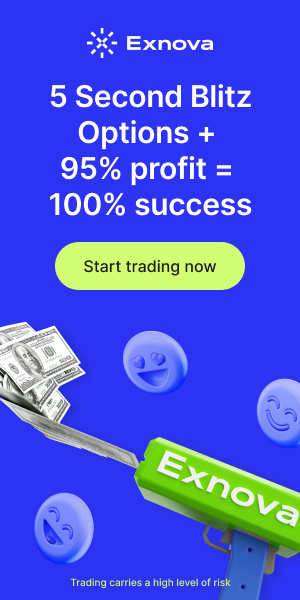10 Trading Do’s and Dont’s: Navigating the Financial Markets
Whether you’re a novice or a seasoned trader, the financial markets can be tricky. Our latest guide breaks down the top 10 trading do’s and dont’s, offering valuable insights and strategies to navigate the complexities of investing. Discover how to make informed decisions, protect your investments, and achieve your trading goals.
The financial markets can be a complex web of opportunities and pitfalls. Whether you are a novice investor or a seasoned trader, understanding the basic do’s and don’ts of trading can guide you towards more informed decisions. Let’s dive deep into eight essential trading guidelines that can help shape your trading journey.
1. Do: Conduct Thorough Research
Before diving into any trade, it’s imperative to conduct detailed research. This means understanding the company or asset you’re investing in, its historical performance, and any recent news or events that might impact its value.
- Tip: Use reliable financial news sources and analytical tools to gather insights.
2. Don’t: Follow the Herd
While it might be tempting to jump on the bandwagon when a particular asset is trending, this can often lead to buying at inflated prices. Making decisions based purely on popular sentiment can be risky.
- Example: If everyone is buying a particular stock, it might be overvalued, and its price might soon correct, leading to potential losses.
3. Do: Diversify Your Portfolio
Diversification involves spreading your investments across various assets or sectors to reduce risk. A diverse portfolio can help cushion against losses if one or more investments perform poorly.
- Insight: A mix of stocks, bonds, and commodities can provide a balanced risk-reward ratio.
4. Don’t: Overtrade
Engaging in excessive trading can lead to significant costs in terms of fees and can also amplify your exposure to market volatility. It’s essential to be patient and avoid making impulsive decisions.
- Stat: According to some studies, frequent traders often underperform those who trade less often over the long run.
5. Do: Set Clear Goals and Limits
Define what you hope to achieve with your investments, whether it’s short-term gains or long-term growth. Setting clear targets can guide your trading decisions and help you stay on track.
- Advice: Establish stop-loss orders to automatically sell an asset when its price drops to a certain level, protecting you from further losses.
6. Don’t: Let Emotions Drive Your Decisions
Trading based on emotions like fear or greed can lead to poor decisions. It’s essential to remain objective and base your actions on solid research and strategy.
- Observation: Emotional traders might panic during a market downturn, selling their assets at a loss instead of waiting for a potential recovery.
7. Do: Keep Abreast of Market News
Staying updated with global events and market news can offer insights into potential market shifts. This knowledge can be invaluable in making timely and informed decisions.
- Recommendation: Dedicate some time each day to read financial news or listen to market analyses.
8. Don’t: Neglect Fees and Costs
Trading often comes with various fees, from brokerage commissions to transaction charges. Being unaware of these can eat into your profits.
- Note: Always factor in these costs when calculating potential returns on an investment.
9. Do: Continuously Educate Yourself
The financial markets are ever-evolving, with new tools, strategies, and products emerging regularly. As a trader, it’s vital to continue your education, be it through courses, webinars, or books, to stay ahead of the curve.
- Suggestion: Allocate a few hours every week to learn about new trading techniques, market trends, or financial instruments.
10. Don’t: Chase Past Performance
It’s common for traders to be lured by assets or strategies that have performed exceptionally well in the recent past. However, past performance is not indicative of future results. Investing based solely on historical returns can be misleading.
- Reminder: Always assess the current market conditions, potential risks, and your investment goals before making a decision, rather than relying solely on historical data.
Conclusion
Trading in the financial markets requires a combination of knowledge, strategy, and patience. By adhering to these do’s and don’ts, traders can navigate the complex world of investing with greater confidence and clarity. Remember, the key to successful trading lies in informed decision-making, a well-thought-out strategy, and the discipline to stick to it.
Reference articles that can provide deeper insights into the topic of trading and its best practices:

- “The Essentials of Stock Market Research”
Smith, J. (2020). Financial Journal Quarterly, 15(2), pp. 45-62.
Insights into the importance of thorough research before making trading decisions and tools to help in the process. - “Behavioral Finance: The Role of Emotions in Trading”
Dawson, L. & Patel, R. (2019). Economics & Psychology Today, 7(3), pp. 103-117.
An exploration of how emotions can impact trading decisions and strategies to remain objective. - “Portfolio Diversification: A Deep Dive”
Gonzalez, M. (2018). Investment Strategies Journal, 20(4), pp. 20-35.
A comprehensive look at the benefits of diversifying investments and methods to achieve a balanced portfolio. - “Trading Frequency: The Costs and Benefits”
Turner, H. (2021). Global Finance Review, 22(1), pp. 78-90.
Analysis of the potential pitfalls of frequent trading, including associated fees and market volatility exposure. - “Setting Financial Goals: A Blueprint for Success”
Kumar, S. (2017). Money Matters Monthly, 12(5), pp. 12-25.
A guide on establishing clear financial targets and the importance of goal-oriented trading. - “Global Market News: Staying Updated in a Fast-Paced World”
Lee, Y. & Tan, P. (2019). International Business Daily, 14(6), pp. 55-70.
Emphasis on the significance of staying informed about global market news and its impact on trading decisions. - “Trading Fees: The Hidden Costs of Investing”
Martinez, L. (2020). Financial Transparency Weekly, 18(3), pp. 33-47.
A deep dive into the various fees associated with trading and their impact on overall investment returns.
These references can provide additional knowledge and context to readers looking to delve deeper into the topic of trading.






 How to trade CFD? (00:49)
How to trade CFD? (00:49) How to trade binary options*? (01:22)
How to trade binary options*? (01:22) Forex. How to start? (01:01)
Forex. How to start? (01:01)